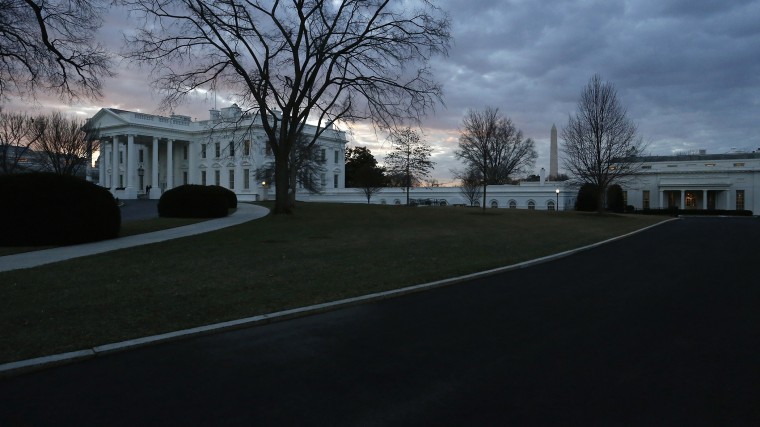Americans learned late Monday night that the Trump administration has a radical new health care position: it wants the courts to not just strip protections from Americans with pre-existing conditions; the administration also wants the courts to destroy the Affordable Care Act in its entirety.
In terms of real-world impact, the Trump administration, unable to pass a reform law of its own, believes judges should help Republicans take coverage from tens of millions of Americans, and take critically important health care benefits from tens of millions more.
It's against this backdrop that a reporter asked Donald Trump what his message to families concerned about what he might do to their health security. "Let me tell you exactly what my message is: the Republican Party will soon be known as the party of health care," the president responded. "You watch."
Even by 2019 standards, this was odd.
Indeed, former U.S. Solicitor General Walker Dellinger responded to the Trump administration's newest court filing on the ACA as both "legally indefensible" and "politically insane."
Any chance some rogue cabinet officials screwed this up? If Politico's reporting is accurate, no -- because the gambit was the White House's idea.
The Trump administration's surprising move to invalidate Obamacare on Monday came despite the opposition of two key cabinet secretaries: Health and Human Services Secretary Alex Azar and Attorney General Bill Barr.Driving the dramatic action were the administration's domestic policy chief, Joe Grogan, and the acting director of the Office of Management and Budget, Russ Vought, according to three sources with direct knowledge of the decision. Both are close allies of White House acting chief of staff Mick Mulvaney, who helped to engineer the move.
There is a degree of irony to the political circumstances: many assumed Democrats might try to change the subject away from Special Counsel Robert Mueller's investigation following the release of Bill Barr's memo.
Instead, it was Trump World that changed the subject -- and started a fight Democrats are eager to have.
Indeed, the Daily Beast had an interesting report yesterday, noting that Republicans -- who just struggled badly through a midterm election cycle in which health care was a dominant issue -- have no idea why the White House did this.
GOP officials couldn't help but marvel at Trump's inability to enjoy a rare grace period. "They are completely tone deaf," texted one of the party's top strategists. "How bout a few more victory laps on Mueller while you can get away with it? WTF is wrong with them?" [...]One of the party's top pollsters told The Daily Beast that private data showed that the issue of health care had likely cost Republicans more than a dozen seats in the House in 2018."It was mostly all pre-existing conditions," the pollster said. "Where they got the big run. Where they went from 20 seats to winning 40 seats, was on health care."
A Washington Post analysis described the White House new strategy on health care as "baffling."
For his part, the president asked Senate Republicans yesterday to come up with a new health care plan, perhaps unaware that GOP lawmakers have spent the last decade trying and failing to do exactly that.
Postscript: In case this isn't obvious, the more Trump and his party focus on tearing down the existing system, the more Republicans end up unifying Democrats. Remember, Dems are divided on many key elements of the health care debate, and the party tends to fracture on some of the more ambitious efforts being touted by Medicare-for-All proponents.
But when it comes to the GOP crusade to take health care benefits from tens of millions of American families, it's Republicans who are divided and Democrats who are united.
